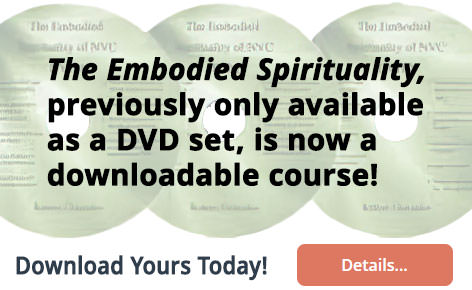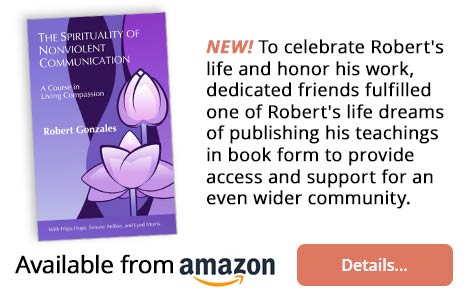

Welcome to the Robert Gonzales Training Legacy. Here you can learn more about Robert and the powerful teachings he dedicated his life to. NVC Academy is proud to house and share with you the complete body of his life's work. We invite you to explore, learn, and help keep his legacy alive!
Robert's passion was in the spirituality of the Nonviolent Communication (NVC) process. He saw NVC both as a process that helps people connect more authentically with themselves and others, and as a spiritual practice and way of living. The worldwide NVC community mourned when Robert died in 2021. He left behind a legacy of work that emerged from a lifetime of inquiry into the intersection between spirituality and human communication. More about Robert.
Article
9-13 minutes
So often we're habituated to associate a “why” question with being reproached, blamed or shamed – and so defensiveness arises. However, in order to maintain a flow of understanding and collaboration, we need to hear and say the “why” while finding other ways to ask for it. Here we look at how to ask questions that bring each of us vital information that can open up discovery and learning, for our mutual benefit.
Details...Article
11 - 26 minutes
In the "obnoxious stage" we care for our needs in a way that doesn't respect others' needs. In the "emotional liberation" stage we fully care for others' needs as much as our own—while being free of fear, guilt, shame, or obligation. Often NVC training teaches us how to achieve the latter stage without the former. For greater compassion we can be more rigorous in how we talk about “responsibility", impacts and interdependence.
Details...Practice Exercise
4 - 6 minutes
With practice we can prevent reactivity from overtaking and harming: notice signs of reactivity, bring compassion to it, see reactivity as the misperception of threat and a distortion of what's happening, plus engage and pursue connection and the clarity to weaken reactive impulses. In taking responsibility like this overtime, you can live from your values and from care. And life can get easier for you and others around you.
Details...Practice Exercise
3 - 5 minutes
Use this exercise to identify what state you're in at any moment, and as an exercise to grow capacity for self-awareness and self-compassion. Identify what happened, thoughts, sensations, feelings, longings, etc. Includes a table that outlines three states of being: Protective/Defensive, Vulnerability, Essence.
Details...Trainer Tip
1 - 2 minutes
It's important to make requests specific and doable. Also, without a swift request immediately after we state our observation, feeling, and need in regard to the situation, the other person is left guessing what we want. Instead, a swift request can bring clarity and lessen the potential for the listener to become defensive or argue.
Details...Article
8 - 12 minutes
To help you stay connected to yourself and the other person when in challenging discussions about COVID-19 vaccines or other hot issues, without labeling others as reactive or otherwise, you can begin by tracking signs of your own reactivity to bring mindfulness onboard, then shifting your attention to universal needs; and asking to connect about it later. Read on for more.
Details...Trainer Tip
1-2 minutes
Trainer Tip: Stating our observations, feelings and needs can still be heard as criticism if we don't follow it up right away with a specific, doable request. Ending your statement with a request for what you want can clarify the situation and reduce the chances that you'll be met with defensiveness. Read on for an example.
Details...Article
23 - 34 minutes
Society gives us short-sighted explanations about human nature, life and what’s (un)changeable. The coronavirus pandemic is disrupting that explanation. Our current social order upholds impoverishment, police brutality, and is leading us towards our extinction. Change begins with people mobilizing resources towards a vision that holds systemic care for all, plus engages shared risk and collective action towards that vision.
Details...Article
3 - 5 minutes
When someone responds with painful sarcasm, criticism, or dismissal you can respond with empathy, or with clarity about your intention, need and request. If you're unable to do this, later you can privately write what they said, identify the feelings and needs of both of you, then write possible responses. This can help you remember to stay with your intention and what’s true for you without getting caught in defensiveness or reactivity.
Details...Article
1-2 minutes
Here's a list of words that pose as feelings, but are actually interpretations of what you think someone is doing to you. They trigger defensiveness in another thereby preventing a connected dialogue. Behind each of these words are precious feelings and needs. This sheet includes ways to distinguish feelings from interpretations.
Details...

